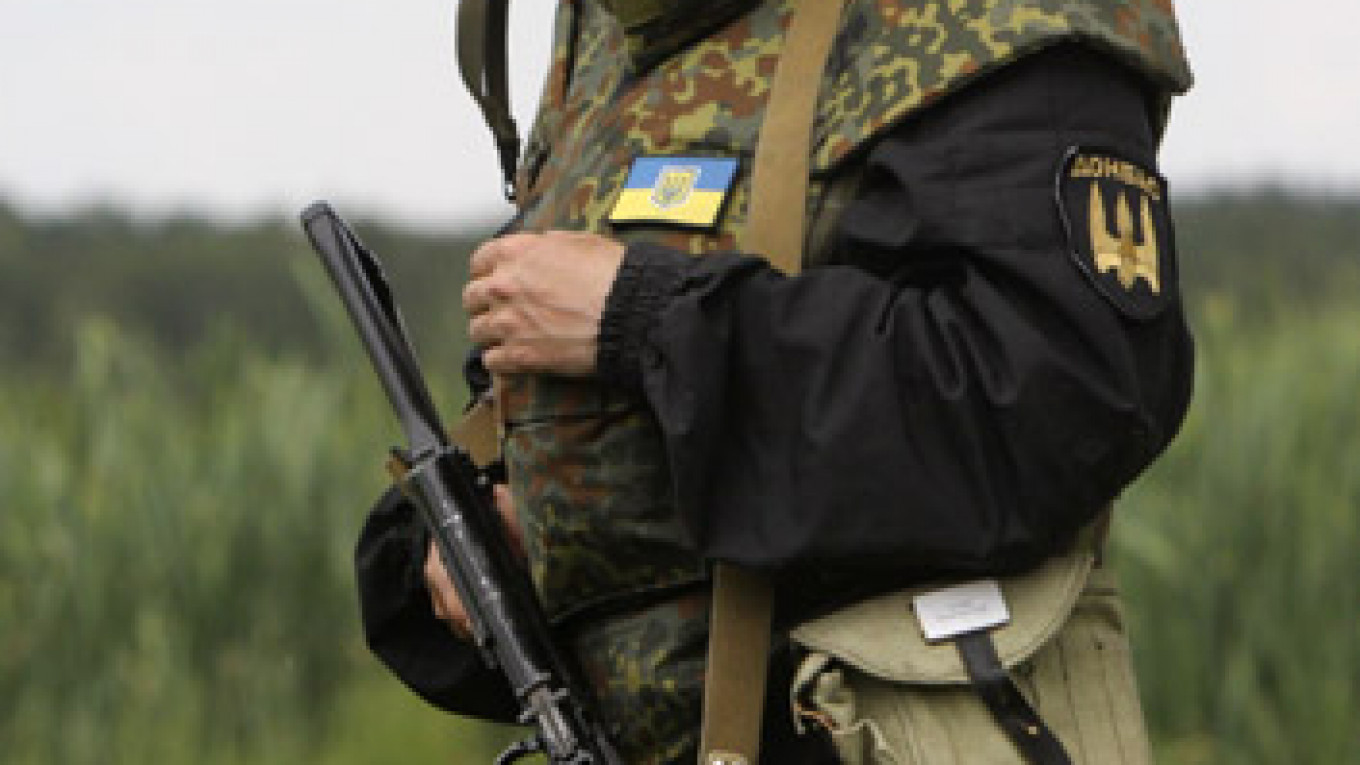DONETSK, Ukraine/MOSCOW — Russia accused Ukrainian authorities Monday of escalating violence against civilians in the rebel-held east of the country and said it would submit a draft resolution to the United Nations calling for an immediate end to the bloodshed.
In the latest fighting, Ukrainian border guards said a pro-Russian militia had attacked one of their posts with automatic weapons and grenade launchers in the early hours, triggering a battle that was still raging many hours later.
Ukraine and its Western allies accuse Moscow of fueling the pro-Russian uprising that threatens to break up the former Soviet republic of 45 million people. Russia denies orchestrating the unrest, and says Ukraine's attempts to end it by military force are making the situation worse.
Russian Foreign Minister Sergei Lavrov said Moscow would submit a draft resolution to the UN Security Council later Monday, calling for an immediate end to the violence and the creation of humanitarian corridors to help civilians escape the fighting.
In pointed comments aimed at newly elected Ukrainian President Petro Poroshenko, Lavrov said that Western nations had assured Russia the situation in Ukraine would improve after the May 25 election that brought him to power. Instead of that, he said, "everything is happening in exactly the opposite way."
"People are dying every day. Peaceful civilians are suffering more and more: The Army, military aviation and heavy weapons continue to be used against them," Lavrov told reporters in Moscow.
Poroshenko and Ukraine's pro-Western government have defied Moscow's repeated calls for an end to what Kiev calls its “anti-terrorist” operation against armed separatists in the eastern Donetsk and Luhansk regions, who want to follow the example of Crimea by splitting from Ukraine and joining Russia.
On the opposite side of the continent, Poroshenko and President Vladimir Putin will both attend a series of events in France this week to mark the 70th anniversary of the D-Day landings that opened the Western front against Nazi Germany in World War II.
While no formal meeting between the two is scheduled, even a handshake would be significant. Moscow refused for months to recognize the Ukrainian leadership that replaced its ally, Viktor Yanukovych, when he was toppled by protests in February.
Despite a pullback of some of the tens of thousands of Russian troops on the border with Ukraine, violence increased in the east of the country at the start of last week, with dozens of pro-Moscow rebel fighters killed in a government assault. Many were Russians, whose bodies were sent back across the border.
In Geneva, a spokesman for the UN Office for the Coordination of Humanitarian Affairs reacted cautiously to Russia's proposal to create humanitarian corridors for civilians, saying a crucial question was who would secure them.
"How is it going to be policed? That would be a key question for us," spokesman Jens Laerke said.
"Because once you say here's a corridor, once people start moving on that, if there is no one to protect them, then it is very dangerous."
See also:
A Message from The Moscow Times:
Dear readers,
We are facing unprecedented challenges. Russia's Prosecutor General's Office has designated The Moscow Times as an "undesirable" organization, criminalizing our work and putting our staff at risk of prosecution. This follows our earlier unjust labeling as a "foreign agent."
These actions are direct attempts to silence independent journalism in Russia. The authorities claim our work "discredits the decisions of the Russian leadership." We see things differently: we strive to provide accurate, unbiased reporting on Russia.
We, the journalists of The Moscow Times, refuse to be silenced. But to continue our work, we need your help.
Your support, no matter how small, makes a world of difference. If you can, please support us monthly starting from just $2. It's quick to set up, and every contribution makes a significant impact.
By supporting The Moscow Times, you're defending open, independent journalism in the face of repression. Thank you for standing with us.
Remind me later.






